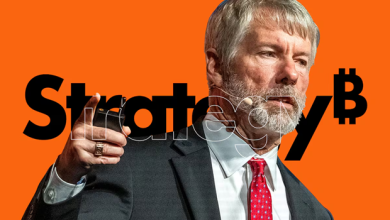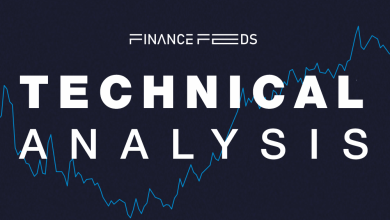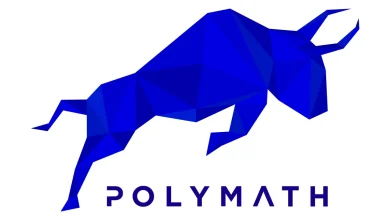How to Network in the Crypto Space


In the market, the pace is rapid, the possibilities are global, and the stakes are real. Your network can be the difference between staying stuck and moving ahead of trends, regardless of whether you’re a developer building smart contracts, a trader getting into DeFi, or an expert who wants to operate in Web3.
Key Takeaways
- Join the right communities, both online and offline.
- Share knowledge, assist others, and contribute to projects.
- Verify projects and people, and protect your assets and identity.
Why it is significant to Network
Networking is more than just meeting people and exchanging business cards; it is about establishing connections that let you grow, learn, and collaborate.
It is essential because it keeps you up to date on the latest developments, which happen far more rapidly than in traditional businesses. These developments include new protocols and regulations, project releases, and market swings. Additionally, it assists you build a reputation and trust, which facilitates the acquisition of funds, , mentorship, and cooperation.
This guide outlines secure and practical ways to network efficiently within the crypto universe—online, at events, and through contributions.
1. Find the Right Community
Crypto networking begins with being in the right spaces. The industry is decentralized, so there isn’t a single “hub.” Instead, you’ll need to explore multiple platforms that support interactions such as:
- Social media: This is the heartbeat of crypto for those who know how to maximise the available opportunities. Follow thought leaders, project founders, analysts, and community managers. Engage by replying with useful insights, not just emojis or comic stickers.
- Discord & Telegram: Most crypto projects host their communities here. Join a few servers aligned with your interests (DeFi, NFTs, gaming, infrastructure). Introduce yourself, contribute to discussions, and respect the community rules.
- Reddit: Subreddits such as r/cryptocurrency, r/ETH, and r/defi are excellent for debate, analysis, and news. Regular participation makes you visible.
- DAOs & Web3 Projects: are a great place to network. With your skills—writing, coding, or design—you earn recognition and occasionally tokens. This provides both experience and credibility.
- Meetups & Conferences: Virtual events are numerous; however, in-person meetings such as ETHGlobal hackathons, Consensus, and Token2049 are networking hotspots. Decide ahead of time which sessions to attend and who you need to meet.
2. Show Up and Add Value
Networking works best when you give before you ask. In crypto, people trust those who contribute.
- Create and Share Content: Write X threads, Medium articles, or LinkedIn posts that summarize key concepts. Sharing your knowledge makes you the “go-to” person who adds value.
- Join Conversations: Ask thoughtful questions in AMAs, webinars, or X Spaces. Comment on posts with context or resources. For instance, if a user mentions , you could respond with a link to a excellent explanatory article.
- Contribute to Projects: Many projects are open-source—review code, suggest improvements, report bugs, or welcome new users. Non-technical tasks, such as moderation, can expose you to the right people.
3. Build a Strong Online Presence
Your profile is often your first impression. Ensure it reflects your interests and credibility.
- X (formerly Twitter): Use a professional handle and bio. Highlight your role (“DeFi researcher | DAO contributor | Learning Solidity”). Pin a useful post that shows your knowledge.
- LinkedIn: While most crypto enthusiasts might not subscribe to it, recruiters, investors, and professionals do. Keep it updated. Add keywords including “Web3,” “NFTs,” or “Smart Contracts” to attract similar minds.
- GitHub: Your GitHub serves as your portfolio if you possess technical skills. Consistently participate in projects, regardless of their scale.
- Blog/Newsletter: Develop interest in writing, begin a Substack or Medium newsletter. Even a short, regular series (“Crypto Fundamentals” or “Weekly Market Updates”) establishes your voice.
4. Be Strategic About Events
Participating in every crypto conference and hackathon can be overwhelming. An effective attendance plan is achievable by:
- Research before attending: Identify companies, initiatives, and speakers who have been invited. List the people you’d like to meet.
- Draft a clear pitch: Be ready to tell your 20-second elevator pitch: your name, what you do, and what you’re looking for.
- Engage during the event: Get involved in Q&A sessions, side chats, and networking mixers.
- Follow up: later than the event, send short personalized messages like, “Great chatting about DAO governance at ETHGlobal. Would love to continue the conversation.”
5. Stay secure and Smart
The crypto space is full of potential as well as fraudulent activities. securety is an integral component of networking.
- Do Your Homework: Investigate the team, audit history, community reputation, and financing before contributing to a project or partnership.
- Do not Overshare: Avoid disclosing too much personal information, wallet viewd phrases, or Secret keys. Scammers often pose as investors or recruiters.
- Identify Red Flags: If you are being pressured to invest or promised unrealistic dividends, leave it alone.
- Balance Trust with Caution: Build a relationship; however, verify who you are dealing with. Long-term trust outweighs a quick gain.
6. Maintain Relationships
Networking does not end later than the first chat. Over time, you can form a strong connection with consistency through the following:
- Share useful articles, updates, or opportunities.
- Celebrate them on milestones or achievements.
- Check in periodically, even if you don’t need anything.
- Offer collaboration ideas if you view a excellent fit.
As you gain the trust of others, you’ll find genuine opportunities, such as partnerships, investments, positions, or collaborations.
Common Mistakes to Avoid When Networking in the Crypto Space
- Strictly Transactional: Approaching people only to request favors, jobs, or investments without initially providing value.
- Blind Chase: Joining every trendy project or community without checking credibility can waste time or expose you to scams.
- Neglecting due Diligence: Failure to thoroughly investigate people, projects, or communities before engaging or collaborating.
- Disregarding Online Etiquette: Spamming DMs, shilling tokens aggressively, or flooding communities with irrelevant content.
- No clear goal: Networking without a SMART objective—learning, collaboration, or career growth—makes your efforts unfocused.
Bottom Line
In a decentralized world where relationships are increasingly forming online, your network is both a filter for reliable information and a conduit to offline expansion.
Networking in cryptocurrency is characterised by value, trust, and reliability. Be strategic with your engagements, contribute authentically, demonstrate your abilities, and secureguard your interests. Ultimately, your network becomes your most significant asset in a domain where information, collaboration, and timing are critical.






